Prepare for success in your PMS English Precis, Composition & Translation exam with our detailed ‘PMS English Precis, Composition & Translation SOLVED PAST PAPERS’. This essential resource offers extensive solutions for the year of 2022, 2021, 2020, 2019, 2017, and 2016’s precis, idioms, passive voice, direct-indirect narration, composition paragraphs, vocabulary and translations. Developed by subject experts and checked by candidates who have previously passed, this guide is an indispensable tool for anyone aiming to improve their performance in PMS Examination Punjab Pakistan.
PMS ENGLISH PRECIS COMPREHENSION & TRANSLATION PAPER 2022
The following Essay Topics were given in the English Precis, Comprehension Paper:
Q1. Write a Paragraph of 200 words on any one of the following topics:
- Neocolonialism
- Ethics and Journalism
- Consequences of Rural Migration to Cities
- A critical analysis of judicial system of Pakistan
Q2. Use any Ten of the following idiomatic expressions in your own words.
i. Get your act together
ii. Scrape the barrel
iii. Cut corners
iv. Lose your marbles
v. Bite the bullet
vi. On the ball
vii. Take a rain check
viii. To get bent out of shape
ix. Keep up appearances.
x. To fly in the face of
xi. Comparing apples to oranges
xii. The salt of the earth
Q3. Write a letter to the Inspector General Police about the discriminatingly attitude of the police towards the citizens. OR
Write an application to the General Manager, Sui Northern Gas Pipelines Limited (SNGPL) about the installation of gas in your colony.
Q4. Write the antonyms of the following words:
- Astigmatism
- Centrifugal
- Diurnal
- Exhaustible
- Gluttonous
Q5. Change the narration of any Five of the following sentences.
- My father often told me, “Every obstacle is a steppingstone to success.”
- All said, “I must go to Lahore next week to visit my ailing mother.”
- “Hurrah”! said the captain of the team, “We won the match.”
- He said to me, “Do you know the fact?”
- “Could you ever afford to displease your parents?” said I to my friend.
- The teacher pointed, “Here in this mausoleum lay buried the king.”
- He reminded me, “When the cat is away the mice will play.”
- The king said, “You have made me feel happy with your sweet music although I have never felt so much happy before.”
Q6. Change the voice of any FIVE of the following sentences:
- Do not pay him anything.
- They will have caught the thief
- Lock the door
- I shall prove her innocence
- I had rung the bell
- I bought two books.
- He issued three tickets to them.
Q7. Fill in the blanks with suitable prepositions
- He insisted seeing the documents.
- She made a point in coming late so that everyone would look
- How al e you getting at school?
- In spite of the heat he refused to take his coat.
- He is unreliable do not count his help.
- He is interested history.
- He began explaining the wonders of the brain and its ability to conjure subconscious fairy tales.
- In other words, 1,300 people were jostling every single position.
- They looked back upon his pusillanimity awe.
- After all, everyone assumes that people hanker happiness and pleasure.
Q8. Make a precis of the following passage and suggest a suitable title.
What the future of oratory in general will be it is impossible to forecast. The English word ‘orator’ seems to have fallen on evil days. It is rarely used without a slightly derisory accent as when men say with curious emphasis, ‘I am no orator as Brutus is’. The orators of ancient times felt themselves to be engaged on a task of the highest worth and value. They were ‘shaping works for all the future’ and “offering themselves to be examined by all-testing Envy and Time”, as one of the ancient writers said when defending and praising the scrupulous care taken by Demosthenes. Today, the care and attention given to the art of public speaking has sensibly declined. Sir Winston Churchill was, in many respects, a survivor from the golden age of oratory. No doubt it could be said of him as was said of the great orator of ancient times, ‘he adopts no thought, no word at random, but takes much care of both the arrangement of his ideas and the graciousness of his language”. English oratory is adorned with many famous names and among them Churchill stands extraordinarily high. For more than fifty years he has expressed himself on great national and international matters, and the volumes of his speeches are a history in themselves. Many of his speeches will live as examples of human speech at its highest and best, and they will be woven into the fabric of our own history and the history of the world.
Q9. Translate the following passage into English.
اس کرہ ارض پر زندگی کو تباہی بربادی اور غیر فطری اور غیر طبعی موت سے بچانے کے لیے بقائے باہمی کے اصولوں کی پابندی ایسی ناگزیر ہے کہ انسان تو انسان حیوان بھی اس کا شعور رکھتے ہیں ہیں جنگلی حیات کا معمولی مشاہدہ کرنے والوں کو یہ بھی علم ہے کہ مختلف انواع کے جانور باہم مل کر رہتے ہیں۔ چارے پانی کی تلاش میں اجتماعی سفر کرتے ہیں سینکڑوں ہزاروں کی تعداد میں اکٹھے رہتے ہیں اپنی خوراک کے حصول کی جدوجہد میں ایک دوسرے کو فنا کر دینے کی کوشش بھی نہیں کرتے ۔ درندے اگر چرندوں کو چیر پھاڑ کر کھا جاتے ہیں تو اس لیے کہ وہ اگر ایسا نہ کریں تو ان کی بقا خطرے میں پڑ جائے گی تاہم ان کی چیڑ پھاڑ وہاں ختم ہو جاتی ہے جہاں ان کی بھوک مٹ جاتی ہے۔ درندوں کے برعکس انسان ہیں کہ ان کی بھوک ان کی زندگی میں کبھی مٹتی نظر نہیں آتی ان کا پیٹ جیتے جی ممکن حد تک سب ہڑپ کر لینے کے باوجود نہیں بھرتا تو قبر کی مٹی سے بھرتا ہے۔ تاہم تاریخ کے مطالعے سے یہ بھی معلوم ہوتا ہے کہ کبھی کوئی دور ایسا نہیں رہا جو انسانوں میں باہمی محبت کے جوت جگانے والوں کی جدو جہد سے خالی رہا ہو۔
PMS ENGLISH PRECIS COMPREHENSION & TRANSLATION PAPER 2021
Q1.
Write a paragraph of 200 words on any one of the following topics:
a. The role of NCOC in combatting Covid-19
b. Pleasure of reading
c. The role of print journalism in the age of social media
d. Optimism in life
Q2. Use any Ten of the following idiomatic expressions in sentences to make their meaning clear.
a. go cold turkey
b. jump the gun
c. soften the blow
d. like two peas in a pod
e. up to the minute
f. hook, fine and sinker
g. treasure trove
h. dead ringer
i. be over the moon
j. in a pickle k. hit the hay
i. take a rain check
Q3.
Write a letter or application
Write an applicator to the Medical Superintendent of your district hospital for the insufficient supply of medicine in the emergency ward.
Write a letter to the editor of a newspaper highlighting the role of electronic media in creating awareness about the moral and social values in our society.
Q4. Write the antonyms of the following words.
a. Fiasco
b. Sapient
c. Dainty
d. Arduous
e. Mitigate
Q5. Change the narration of any FIVE of the following sentences.
1. The teacher said, “Honesty is the best policy.”
2. The professor said, “If wishes were horses, beggars would ride.”
3. He said, “During my college days I took a morning walk daily.”
4. The peon said, “The principal was not in his office when the visitor came.”
5. The teacher said, “The class is going on a picnic tomorrow.”
6. My younger brother said, “I want new clothes.”
7. You said to him, “No, your brother did not come here yesterday.”
8. I said to him, “Sir, my book was stolen by somebody from my desk yesterday.”
Q6. Change the voice of any FIVE of the following sentences.
a. Do not pay him anything.
b. They will have caught the thief
c. I shall prove her innocence.
d. Lock the door.
e. I had rung the bell.
f. I bought two books.
g. He issued three tickets to them.
Q7. Fill in the blanks with suitable prepositions.
a. Huma is afraid ___ spiders.
b. How are you getting ___ at college?
c. He took the criticism ___ heart.
d. He sat ___ camp fire.
e. His bike skidded ___ the tree.
f. It was kind ___ you to help.
g. His company is greatly sought ___
h. Few persons in the world die ___ over work.
i. Will you entrust me ___ that money.
j. A junior cashier has absconded ___ ten thousand rupees.
Q8. Make a précis of the following passage and suggest a suitable title.
John Lock reflects the new situation in England more than ever when he goes on to argue that the reason men come together to live in a society, with laws, is for the preservation of their property. Since men are driven into society, it follows that the power of that society ‘can never be suffered to extend further than the common good. And this common good can only be determined by standing laws, statues, that all are aware of and agree to, and not by extemporary degrees of, say, an absolute sovereign. Moreover, these laws must be administered ‘by indifferent and upright judges’. Only In this way can the people (and rulers) know where they are.
In an important amendment to the idea of absolute monarchy, Lock said that the king can never suspend the law. Finally, Lock gave voice to the main anxiety of the rising commercial classes in England (fear of something which they saw happening in France, in state intervention in trade), that no power can take from a man his property without his consent.
A soldier may be commanded by a superior in all things, save the disposal of his property. In the same way, a man has property in his own person, meaning that a man’s labor is his property too. The most important consequence of this, Lock says is that people can be taxed only with their consent. (We recognize this now in the doctrine ‘No taxation without representation.)
Q9. Translate the following passage into English.
اگر دنیا آپ کو اپنی طرف نہیں کھینچتی، اگر اللہ کے خوف سے آپکی آنکھوں میں آنسو آ جاتے ہیں، اگر دوزخ کا تصور آپ میں خوف خدا پیدا کرتا ہے، اگر آپ اللہ کی عبادت اسطرح کرتے ہیں جس طرح کرنی چاہیے، اگر نیکی آپ کو اپنی طرف راغب کرتی ہے اور آپ کے پاوں برائی کے راستے پر جانے سے رک جاتے ہیں تو پھر آپ صالح ہیں۔ کچھ صالح ہوتے ہیں، کچھ صالح بنتے ہیں۔ صالح ہونا خوش قسمتی کی بات ہے۔ صالح بننا مسلسل تذکیہ اور مجاہدے کا عمل ہے۔ اس میں وقت لگتا ہے اور تکلیفیں بھی سہنا پڑتی ہیں۔

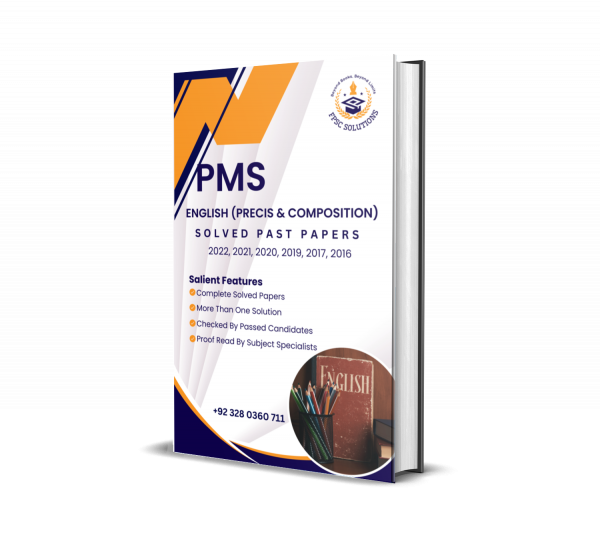
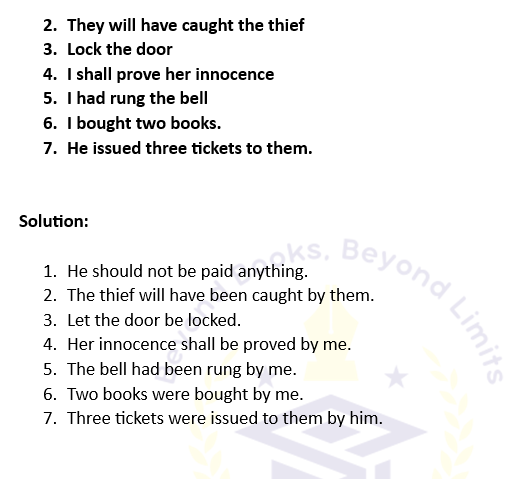
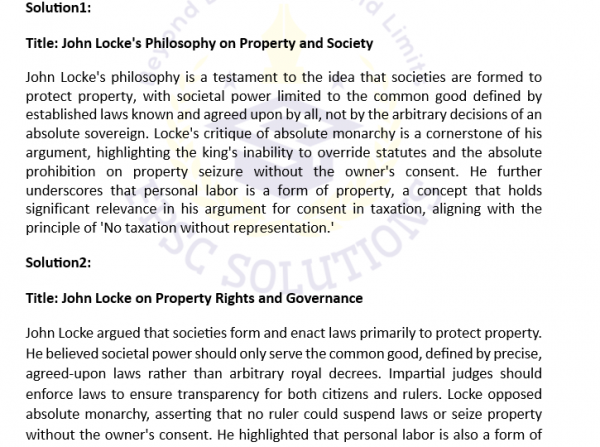
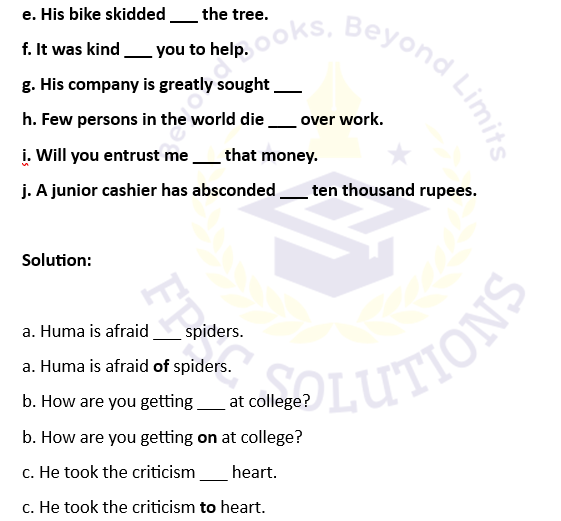
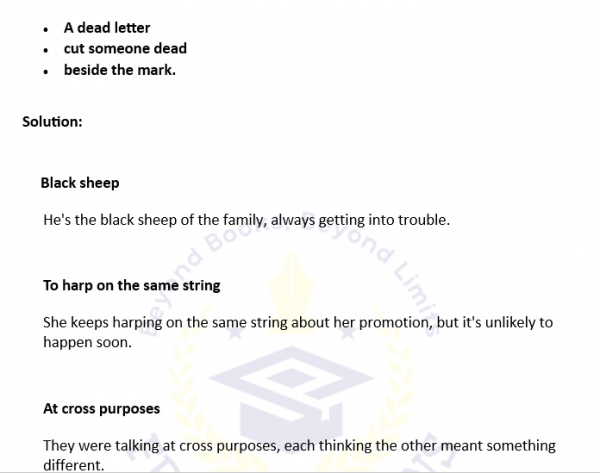
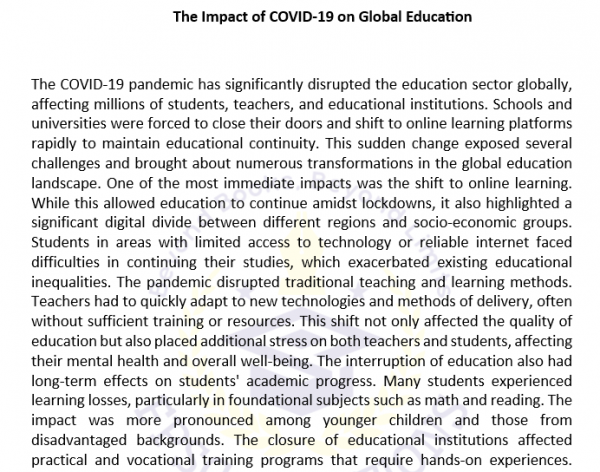
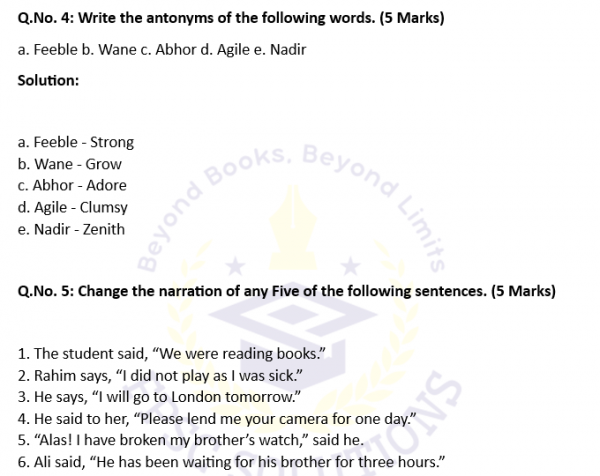

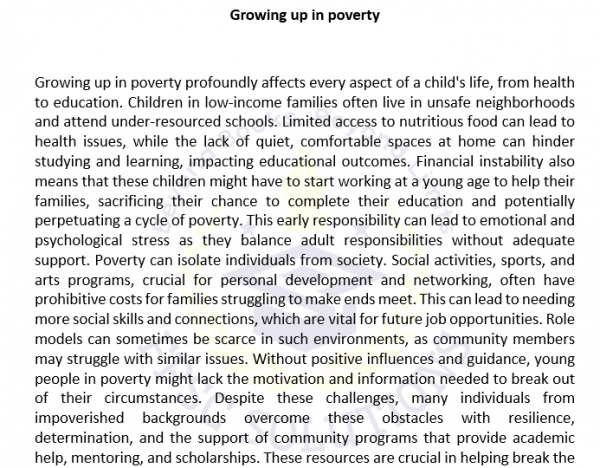
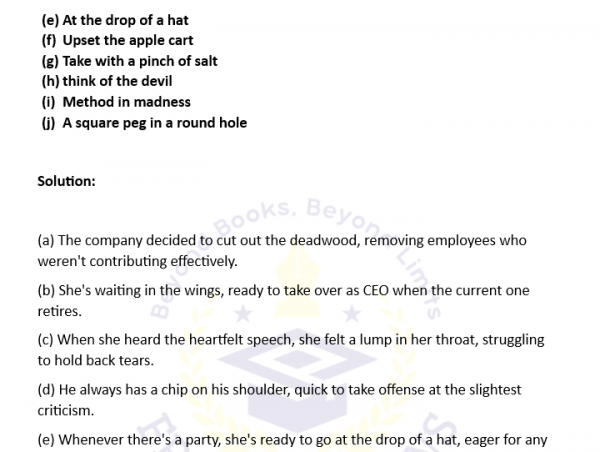
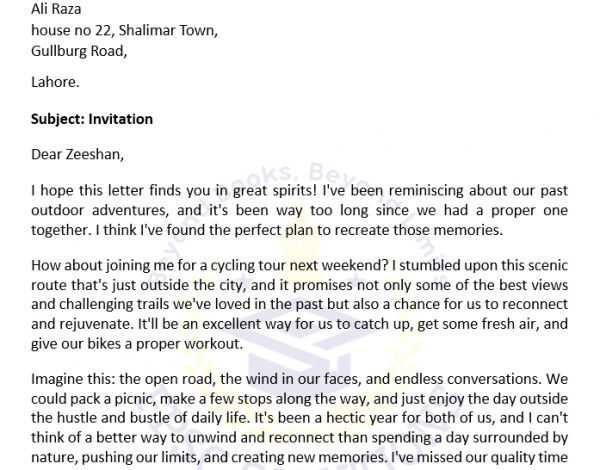
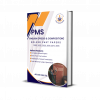
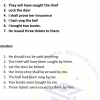
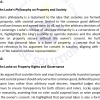
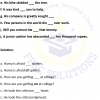
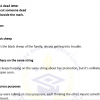
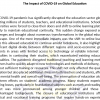
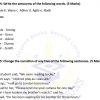

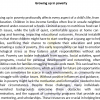

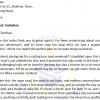
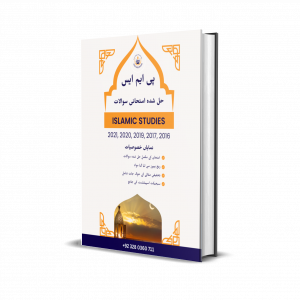
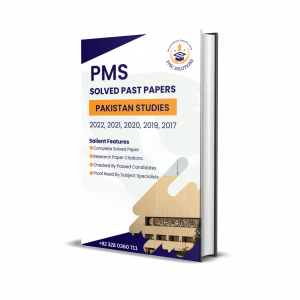
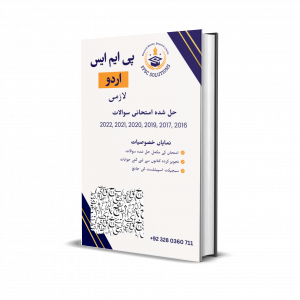
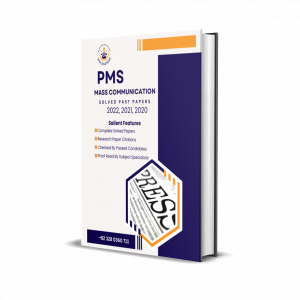
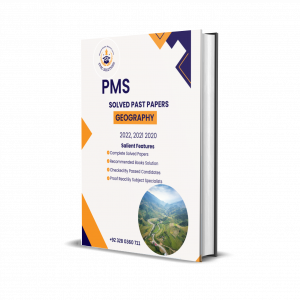
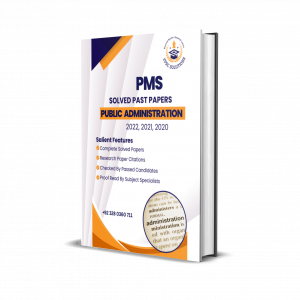
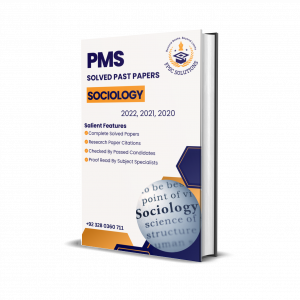
Reviews
There are no reviews yet.